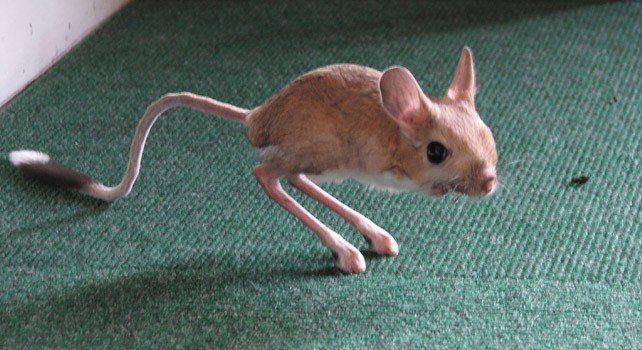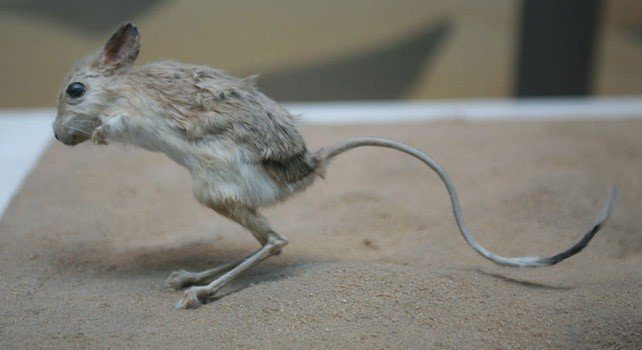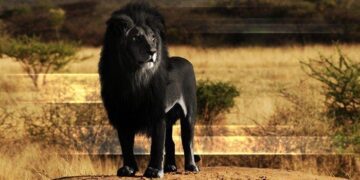Jerboas look like mice with long tufted tails and very long back legs. The small forelegs are not used for locomotion.
In general, Asiatic jerboas have five toes on their back feet and African jerboas have three; the shapes of their ears vary widely between species.
Characteristics of the Jerboas
Jerboas have the ability to hop huge distances relative to its size, an ability that evolved as an adaptation to help them escape from predators, and to aid with long journeys and foraging in its desert environment.
Although jerboas are not closely related to the hopping mice of Australia or the kangaroo rats of North America, all three groups have evolved a similar set of adaptations to life in the deep desert.
This small creature has the ability to leap a full meter to escape a predator.
Jerboa fur is long, soft and silky. Diet varies considerably: some are specialist seed, insect, or plant eaters, others are omnivores.

Sleeping Habits and Where They Live
Jerboas are nocturnal. During the heat of the day, they shelter in burrows. They create four separate types of burrow: two temporary, and two permanent.
The temporary burrows are plain tubes used to escape predators during the night, tending to be just 10 to 20 cm which is 3.9 to 7.9 inches deep, unsealed and not camouflaged.
Permanent daytime burrows are well-hidden and sealed with a plug of sand to keep heat out and moisture in, and are generally 20 to 50 cm which is7.9 to 20 inches long.
The most well-known species is the Lesser Egyptian Jerboa (Jaculus jaculus) which lives in some of the most hostile deserts in the world.
It does not drink at all, relying on its food to provide enough moisture for survival. You can find Jerboas in both the sandy and stony deserts of North Africa, Arabia and Iran.

















